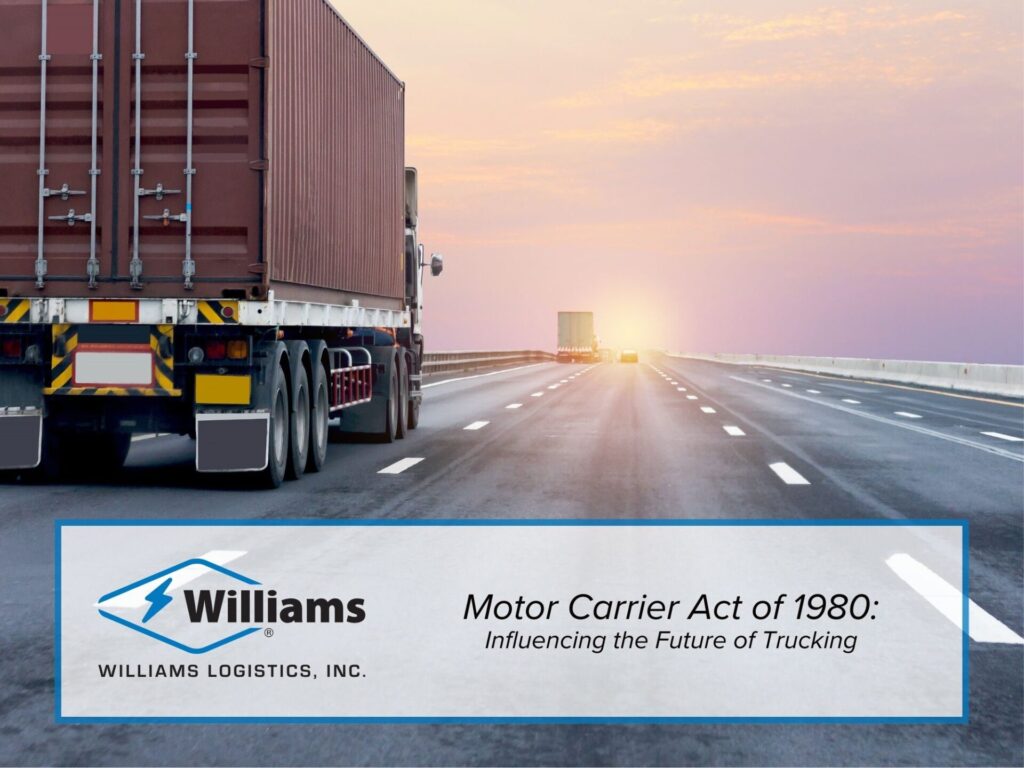The Motor Carrier Act of 1980 has had a significant impact on today's trucking industry. Prior to the act, the trucking industry was heavily regulated, with the government controlling many aspects of the industry, including rates and routes. The act deregulated the industry, allowing trucking companies more freedom to set their own rates and routes. This led to more competition between trucking companies to deliver goods and services more efficiently. Furthermore, it also led to a decrease in shipping costs for consumers, as companies were able to set their rates based on market demand.
Even with all the technological advancements and growth of the industry, the Motor Carrier Act of 1980 still continues to shape the future - regardless of how volatile the market and industry can become. However, recent events have raised concerns about the future of this industry.
Is the Trucking Industry in Trouble?
One of the most significant challenges facing the trucking industry is a shortage of drivers. Despite efforts to recruit new drivers, the number of people entering the industry has not kept pace with demand. This has led to increased competition for drivers and higher wages, which is benefiting truckers but less so for consumers buying goods at higher prices.
Another challenge facing the trucking industry is the rise of e-commerce. Online shopping has led to an increase in the number of small packages being shipped, which has resulted in a shift away from traditional bulk shipping. This shift has put pressure on the industry to adapt to new delivery models, which can be costly and require significant investment.
The trucking industry is also facing increased regulation and scrutiny. Environmental concerns have led to new emissions standards, which can be expensive to meet. Safety regulations have also been tightened, which has led to increased costs for training and certification.
Despite these challenges, the trucking industry is not in trouble. While it may face some difficult times ahead, it remains a critical component of the economy and will continue to provide essential services to businesses and consumers alike. Adaptable trucking companies that grow to match changing market conditions by investing in new technologies or delivery models will be well-positioned to succeed in the years to come.
Will the Trucking Industry Get Better in 2024?
As we look ahead to the trucking industry's future, many wonder whether it will get better by 2024. While it is difficult to predict exactly what the future holds, there are certainly reasons to be hopeful.
First and foremost, the trucking industry has shown that it can adapt to changing market conditions and invest in new technologies. This has been evident in recent years, as the industry has embraced automation, improved safety features, and implemented more efficient delivery models. These advancements are likely to continue in the coming years, which should help to improve the industry as a whole.
As mentioned above, the industry is facing challenges such as a shortage of drivers and increased regulation. However, there are also opportunities for growth and expansion. As businesses continue to rely on timely and efficient delivery of goods, the demand for trucking services is likely to remain strong.
Of course, there are also factors that could impact the industry's growth, such as changes in the economy or global trade policies. However, overall, it seems likely that the trucking industry will continue to provide essential services to businesses and consumers alike in the years to come. (A recent Commercial Carrier Journal article has shed some light on the interesting trends of the trucking industry over the years.)
In conclusion, while we cannot predict the future with certainty, there are reasons to be optimistic about the trucking industry's prospects for growth and improvement by 2024. By embracing new technologies and adapting to changing market conditions, the industry has shown that it can overcome challenges and continue to provide essential services to the economy. At William’s Logistics, our team members continue to strive together to finish the year out strong, safe, and healthy. At the same time, we are excited and look forward to industry changes for ways we can serve and grow with our community.
